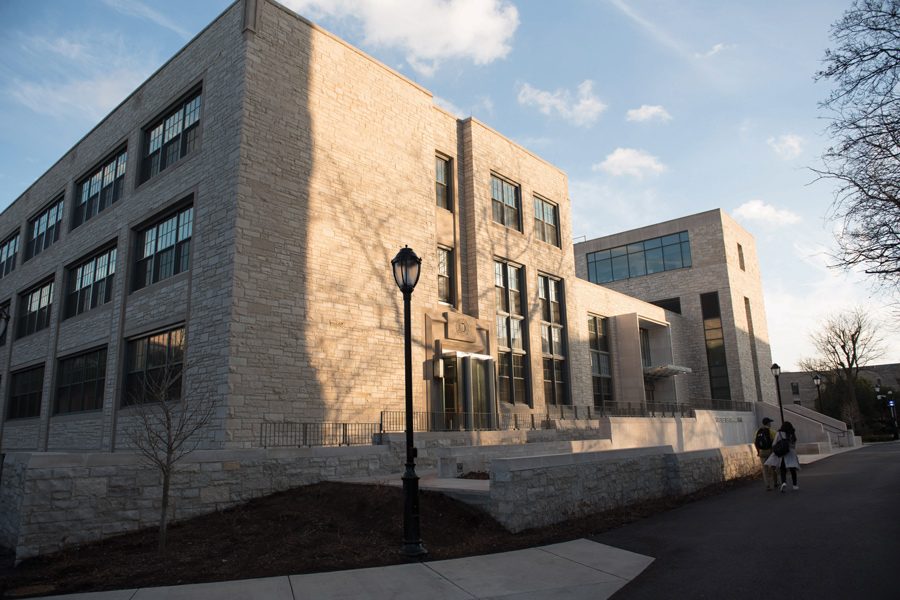Center for Native American and Indigenous Research to offer fellowships
Allie Goulding / Daily Senior Staffer
Kresge Hall. The Center for Native American and Indigenous Studies, which is now offering research fellowships, is located in Kresge.
October 29, 2018
The Center for Native American and Indigenous Research will offer research fellowships for graduate and undergraduate students studying Indigenous populations for the first time this year, a sign the center is advancing its academic standing just five years after it was established.
“The way that the Northwestern community has encouraged, supported and collaborated with the new center has been very encouraging,” Provost Jonathan Holloway said in a news release. “I am excited by this progress and for what it suggests for the future.”
CNAIR was founded in 2013 after students in the Native American and Indigenous Students Alliance pushed Northwestern’s administration to acknowledge John Evans’ role in the 1864 Sand Creek Massacre, in which at least 150 Native Americans were killed.
Since then, the University has been trying to increase the number of opportunities for Native American studies. The Indigenous Studies Research Initiative, announced in 2015, resulted in the hiring of two professors and a postdoctoral fellow, and in 2016, Weinberg was awarded a $1.5 million grant from the Andrew W. Mellon Foundation in order to support CNAIR.
But NU isn’t the only university supporting this kind of research — in fact, some schools offer entire degree programs for Native and Indigenous studies. University of Alaska, for instance, has a PhD program in Indigenous Studies. Some schools offer undergraduate programs, though NU isn’t currently one of them.
But CNAIR faculty are hopeful that NU will offer undergraduates opportunities to study Indigenous curriculum. Medill Prof. Patricia Loew, CNAIR co-director, is working on adding an Indigenous Studies minor to Weinberg, said English Prof. Kelly Wisecup, one of CNAIR’s co-directors.
Because CNAIR is not a department, graduate research about Indigenous populations is currently done through the Native American and Indigenous Studies Cluster as part of the Weinberg College of Arts and Sciences. This means that students in many different departments can have their research funded by CNAIR as long as it pertains to Indigenous populations.
Wisecup said students in any field of study are eligible for a fellowship, so long as their research involves Indigenous peoples and communities.
Bonnie Etherington, for example, is a graduate student studying activist narratives and poetry by Indigenous authors from Oceania. She’s non-Indigenous, but grew up in New Zealand, where she learned that “colonialism limits and erases stories about Indigenous peoples.”
Etherington is excited about the research grants, and thinks the promise of funding will encourage more students to study Indigenous populations.
She said she would be “enthusiastic” about seeing an Indigenous Studies department as well.
“I think CNAIR has done an incredible amount of work already to create space for such scholarship, and I really look forward to seeing how those efforts continue to evolve in the future,” Etherington said.
Applications for the graduate research fellowship are open until Nov. 15; undergraduate applications are continuously open and fellowships are awarded on a rolling basis.
Email: [email protected]
Twitter: @cam_e_cook


